In what she describes as a ‘Five Faves Geneameme’ Jill Ball of Geniaus, the Australian family history blog, has invited other family history bloggers to share details of five books they’ve found most useful in their ‘geneactivities’. (Enough puns already … )
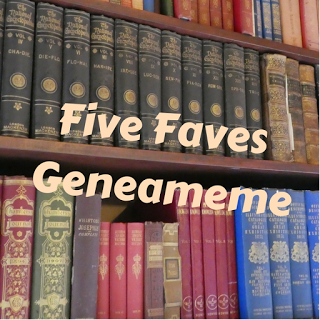
So here, whittled down with great difficulty and in no particular order, are my chosen inspirations:
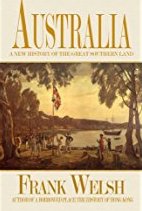 |
Australia: A New History of the Great Southern Land, by Frank Welsh (The Overlook Press, New York, 2006)
Since my books are set very much in the context of early colonial Australia I needed to gen up on my history. This book is not just all-encompassing, it looks at Australia in the context of a larger colonial world. It’s also very readable and has a nice, wry take on historical events, which I really like. |
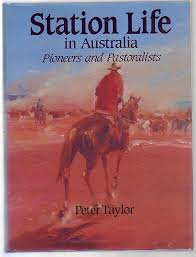 |
Next on the list is Station Life in Australia by Peter Taylor (Allen & Unwin, Sydney, 1988)
Also very readable, with some wonderful anecdotes about the New Chums in early colonial Australia. (The ‘New Chum’ was the Pom who arrived fresh-faced and dewy-eyed and ready to make his fortune on the land without knowing a horse from a heifer; a bit like me.) Essential introduction to a subject I knew nothing about. |
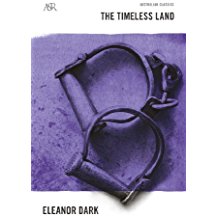 |
Eleanor Dark was doing in the 1940s what other writers such as Kate Grenville don’t dare to do in the 21st century, which is to write about events such as the arrival of the First Fleet from the point of view of Aboriginal people. In fact she writes from the point of view of everyone, from Governor Phillip to convicts and settlers, evenly-handedly and with great perception and understanding. The Timeless Land is book one in a novel trilogy. |

|
Macquarie Country by D G Bowd, (Library of Australian History, 1979)
I had to include this one. It’s about the Hawkesbury – where my ancestors made their first home in New South Wales in 1802 – in the days of Governor Macquarie. It even features my family, who were visited by the governor and his lady wife soon after they arrived in the colony. Full of vivid and useful detail about the earlier days of settlement. |
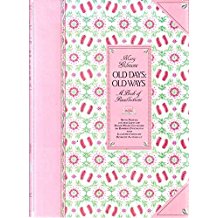
|
In her memoir Old Days, Old Ways (Angus & Robertson, Sydney, 1934) Mary Gilmore was actually writing about her childhood in the Riverina district in the latter part of the 19th century, where she was brought up. The book is a cornucopia of intricate and sometimes hilarious social history; such as the rope that was strung across the room during the Wagga Wagga Gold Cup ball in order to segregate the ‘grandees’ from the ‘commonage’; and the way in which ladies riding horses in crinolines wore weights in their hems in order that their ankles should remain hidden from the gentlemen. Like Eleanor Dark she writes with great humanity and understanding and, crucially, humour. |
